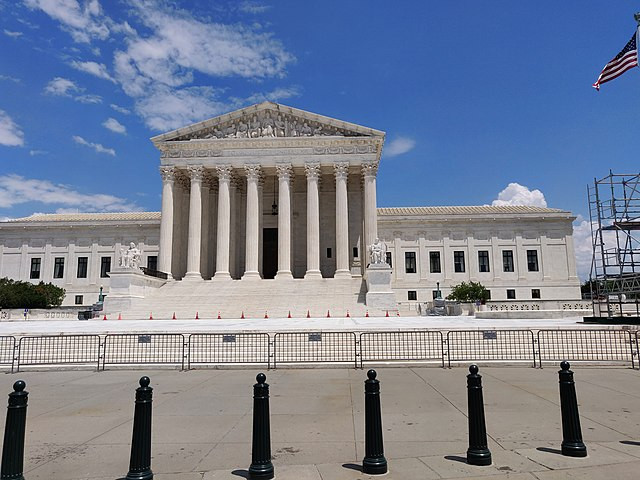The U.S. Supreme Court on Thursday decided that South Carolina Republicans did not engage in unlawful racial gerrymandering when redrawing a congressional district, removing thousands of Black voters. The decision, split along ideological lines with a 6-3 vote, underscores the ongoing complexities in distinguishing race from politics in redistricting processes.
The court's conservative majority determined that civil rights groups failed to demonstrate that race was the predominant factor in the redrawing of the Charleston-area district, currently represented by Republican Rep. Nancy Mace. The ruling emerged from a case that challenged the redistricting on the grounds that it diluted the voting power of Black residents by moving approximately 30,000 Black voters out of the district and into one represented by Democratic Rep. James Clyburn, who is also Black.
Justice Samuel Alito, writing for the majority, stated that there was "no direct evidence" supporting the lower court's conclusion that race was the key consideration. He emphasized that circumstantial evidence did not sufficiently prove that racial motives outweighed partisan ones in the redistricting efforts. "We should not be quick to hurl such accusations at the political branches," Alito wrote, suggesting that state legislators should be granted the benefit of the doubt regarding their intentions.
The ruling is seen as a setback for Democrats and civil rights advocates who argued that the map unfairly marginalized Black voters. Janai Nelson, president of the NAACP Legal Defense and Educational Fund, expressed profound disappointment, stating, "The highest court in our land greenlit racial discrimination in South Carolina's redistricting process, denied Black voters the right to be free from the race-based sorting and sent a message that facts, process, and precedent will not protect the Black vote."
In dissent, Justice Elena Kagan criticized the majority for creating what she described as a "stacked deck" against challengers of racial gerrymandering. She warned that the decision sends a troubling signal to state legislators, effectively giving them a pass to suppress minority voting power under the guise of partisan redistricting. "What a message to send to state legislators and mapmakers about racial gerrymandering," Kagan wrote, adding that the ruling tells politicians inclined to suppress minority votes, "Go right ahead."
The case originated from a January 2023 lower court ruling which found that race was a predominant factor in the redistricting of one of South Carolina's seven congressional districts. This decision had been appealed by Republican state officials, including South Carolina Senate President Thomas Alexander, who argued that their objective was purely partisan: to increase Republican strength in a competitive district.
Rep. Joe Cunningham, a Democrat, had narrowly lost the district to Mace in 2020. With the new map in place for the 2022 elections, Mace won by a significantly larger margin. The changes made the district more securely Republican by shifting a large number of Black voters to Clyburn's district, which remains the only Democratic-held district in the state.
The Supreme Court's ruling, while not immediately affecting the current election cycle due to prior allowances by the lower court, sets a precedent for future redistricting efforts. It suggests that as long as lawmakers can frame their decisions within a partisan context, claims of racial gerrymandering will face a higher burden of proof.
The decision also contrasts sharply with a recent Supreme Court ruling on Alabama's redistricting, where the court found that Republican lawmakers had violated the Voting Rights Act by diluting Black voters' power. This resulted in new maps creating additional districts with significant Black populations in Alabama and Louisiana.
Justice Clarence Thomas, concurring with the majority, reiterated his stance that federal courts should avoid intervening in political disputes over district maps, maintaining that such issues are better handled by the political branches. This position further delineates the ideological divide on the court regarding the role of the judiciary in addressing racial and partisan gerrymandering.






